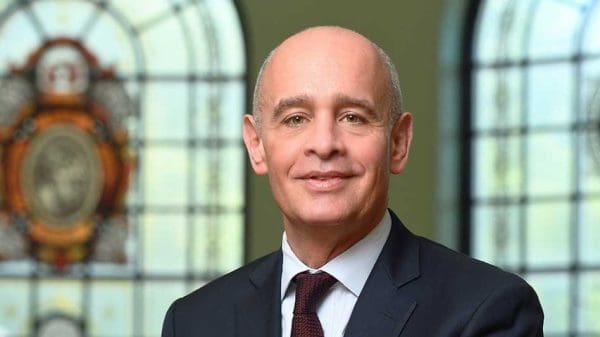
At a recent event, a proud parent shared with me the not-uncommon reaction to news of their child’s acceptance to Hopkins. “Oh, so she’s going to be pre-med?” the parent was asked by a friend. And later got the same question from a relative, colleague, and neighbor. You get the picture.
It’s no secret that when the world-at-large thinks of undergraduate education at Johns Hopkins, they think “pre-med.” And for the most part, I’m thrilled about that. We have stellar programs that do a great job of educating and preparing our pre-med students and a terrific acceptance rate into top medical schools. Our alumni are surgeons and pediatricians; they work at major research hospitals and serve the community in urban clinics. They are living proof of our tradition of excellence.
And yet, as happy as I am about the successful preparation of our pre-med students, I also couldn’t be prouder of the overall liberal arts education we offer students across the academic disciplines. Although we are first and foremost a research university, our undergraduates—regardless of their majors—experience a classic liberal arts education that teaches them to read closely; write with accuracy and grace; think critically across the humanities, social sciences, and the natural sciences; and embrace research in all of these areas. This is the best way to prepare for a successful personal and professional life in leadership and service, and as active, valued members of communities, both large and small.
Our alumni clearly feel the same way. In January, legendary investor William H. “Bill” Miller III committed a record $75 million to the Department of Philosophy to broaden and intensify faculty research, graduate student support, and undergraduate study of philosophical thought. The gift is believed to be by far the largest ever to a university philosophy program. It is also the largest to Johns Hopkins for any department in the humanities. Miller, who is best known for beating the Standard & Poor’s 500 with his Legg Mason fund for a record 15 consecutive years, from 1991 to 2005, said, “I attribute much of my business success to the analytical training and habits of mind that were developed when I was a graduate student at Johns Hopkins.”
I also want to acknowledge the tremendous support for the social sciences we received last summer, when the Stavros Niarchos Foundation committed $150 million to a joint effort with Johns Hopkins University to establish the Stavros Niarchos Foundation Agora Institute at Johns Hopkins University. This academic and public forum will bring together experts from a range of fields including political science, psychology, neuroscience, philosophy, ethics, sociology, and history to forge new ways to address the challenges of civic engagement worldwide and encourage open and inclusive discourse that is the cornerstone of healthy democracies. Together, they will examine the dynamics of societal, cultural, and political polarization, and develop ways to improve decision-making and civic discourse.
Together with our extraordinary scientists, our expert faculty in the humanities and social sciences pursue research that not only preserves and improves the life of our citizens and our world, but defines what it means to be human across space and time. And as a community of scholars, we are the role models for our students. Whether they major in sociology or mathematics; physics or film and media studies; classics or neuroscience, our greatest mission is to introduce them to the rigor and rewards of academic inquiry that will foster their creativity and intellect, ignite their search for truth, and inspire them to solve the most complex global and local problems the world sets before them.
Sincerely,
Beverly Wendland


